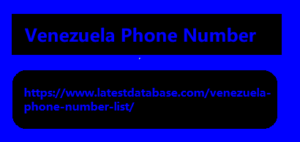Post by account_disabled on Mar 9, 2024 5:35:41 GMT
WordPress site security is one of the decisive issues for obtaining good results from your online presence. The reason for this statement? First of all, Google tends to penalize sites that are dangerous for users, those that spam and those that have been hacked. That's why it's always important to monitor your search console and malware alerts. Then you put your authority at risk and you can't risk running into a problem capable of taking your work offline. Your customers can't wait, especially if you have an e-commerce site. That is, a website to use to sell online . What does this mean? First you need to make sure you have quality hosting at your service, with a daily (if possible hourly) backup and a good mechanism to make life difficult for bad guys. I'm talking about hardware firewall , which has always been a certainty. But then? How to make a blog on WordPress safe and reliable? Here is a series of useful tips.
Always update themes, CMS and plugins Subjects Always update themes, CMS and Venezuela Phone Number plugins Use the HTTPS protocol for the site Always generate strong passwords Disable WordPress file editing Choose a reliable and secure server Beware of spam emails and comments Admin, database, login, Wp-includes Protect your admin page Hide WordPress version Add a suitable firewall Change admin username Work with the new WordPress Buy quality web hosting True WordPress site security I'll start with a basic rule: never let updates overlap. This is a bad habit that risks leading you into problems because often, not always, the updates concern security patches that serve to avoid damage. This applies to themes, but also to plugins and the CMS. Precautions to take? Make a backup before any action, especially when making major release updates . As happened, for example, with WordPress 5.0 which revolutionized the editor.

Is automated or manual updates better? I prefer to check each update and make sure it is compatible with what I already have installed. So I asked my provider to set the uninstallation of automated updates on WordPress as an option. Important: Always be careful about the WordPress plugins you install. If they haven't received updates in a long time (the directory warns you) they probably may be at risk . Because in the event of a bug, no one can notice it in advance. This little attention allows you to improve the blog safely, without having to make improvised backups (make sure your hosting always has adequate service). Always take a look at the reviews, they can reveal problems in advance. Must read: set static page as home page Use the HTTPS protocol for the site This is a precaution to ensure navigation safety . The presence of an SSL protocol to activate HTTPS on the site guarantees those who enter data to have an encrypted passage to the server in order to avoid possible flaws and theft of information. But which SSL certificate to choose ? It depends on your needs and requirements.
Always update themes, CMS and plugins Subjects Always update themes, CMS and Venezuela Phone Number plugins Use the HTTPS protocol for the site Always generate strong passwords Disable WordPress file editing Choose a reliable and secure server Beware of spam emails and comments Admin, database, login, Wp-includes Protect your admin page Hide WordPress version Add a suitable firewall Change admin username Work with the new WordPress Buy quality web hosting True WordPress site security I'll start with a basic rule: never let updates overlap. This is a bad habit that risks leading you into problems because often, not always, the updates concern security patches that serve to avoid damage. This applies to themes, but also to plugins and the CMS. Precautions to take? Make a backup before any action, especially when making major release updates . As happened, for example, with WordPress 5.0 which revolutionized the editor.

Is automated or manual updates better? I prefer to check each update and make sure it is compatible with what I already have installed. So I asked my provider to set the uninstallation of automated updates on WordPress as an option. Important: Always be careful about the WordPress plugins you install. If they haven't received updates in a long time (the directory warns you) they probably may be at risk . Because in the event of a bug, no one can notice it in advance. This little attention allows you to improve the blog safely, without having to make improvised backups (make sure your hosting always has adequate service). Always take a look at the reviews, they can reveal problems in advance. Must read: set static page as home page Use the HTTPS protocol for the site This is a precaution to ensure navigation safety . The presence of an SSL protocol to activate HTTPS on the site guarantees those who enter data to have an encrypted passage to the server in order to avoid possible flaws and theft of information. But which SSL certificate to choose ? It depends on your needs and requirements.
